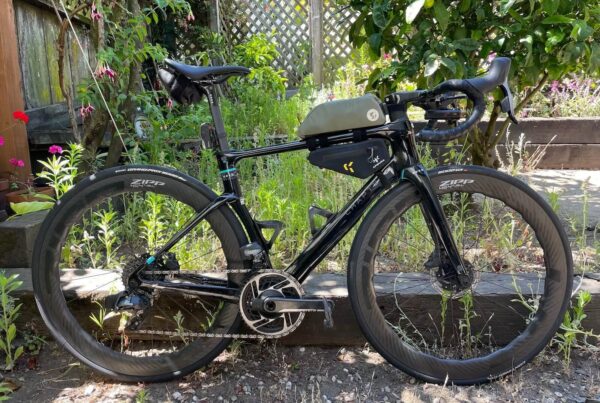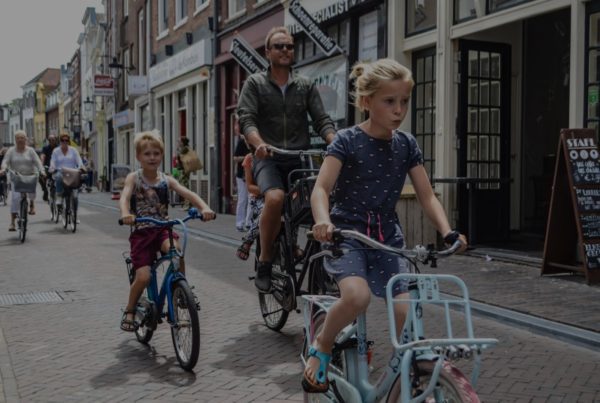In most cities, cyclists have nowhere to lock their bikes legally. Here’s how to change that.
By Bob Mionske
Whether your bike takes you to work or just on the occasional coffee run, when there’s no rack at your destination, riding suddenly becomes a less practical means of getting around.
After all, cyclists are often prohibited not only from bringing bikes inside, but also from locking them to posts or railings.
Of course, we’ve always made use of whatever structures are available. But law enforcement can, and sometimes does, impound illegally parked bicycles, a fact New Yorkers know all too well.
The unfortunate truth is that in most places, cyclists don’t have the right to a safe place to park.
To change this, you must organize locally and lobby your elected representatives. Here are some points worth sharing with them.
The Demand Is There
In 2009, New York City began requiring the owners of commercial buildings equipped with at least one freight elevator to provide access for bicycle commuters.
Interestingly, even though the law does not apply to residential buildings, bicycle parking has become a popular real-estate marketing tool in that city.
Resources Are Available
Cities are increasingly coming up with creative solutions (see “Park Here,” below). Philadelphia has turned old parking-meter posts into bike racks; officials in New York plan to do the same.
In Los Angeles, a new law will require more parking spaces for cyclists and make it easier for developers to swap car parking for bike parking.
Bikes Mean Business
On-street corrals, or rows of bike racks, are a smart use of space. A single car-parking spot can fit 12 bicycles, according to the Clif Bar 2-Mile Challenge.
In other words, bicycle-friendly shopping districts could potentially draw more customers.
Assistance provided by Rick Bernardi, J.D.
….
Park Here!
Three genius bicycle-storage solutions. —Emily Furia
Vancouver, Washington
Top off your tires before heading home using one of the floor pumps attached to some of Vancouver, Washington’s bike racks. Or protect your baby from thieves and the elements by stowing it in one of the city’s card-accessed bicycle lockers.
Long Beach, California—and beyond
Bicycle centers or stations offer secure, indoor bike parking, along with showers, lockers, and sometimes repairs. The first one opened in Long Beach in 1996. Today there are facilities in Minneapolis; Portland, Oregon; St. Louis; and Washington, D.C.
Tokyo
The city’s Kasai train station boasts the world’s largest bicycle garage; it can hold 9,400 bikes underground. Punch in a code, and an elevator retrieves your ride—in about 23 seconds.
This article, In War Over Parking, Cyclists Look To Lock Their Bikes Legally, was originally published on Bicycling on December 9, 2011.



